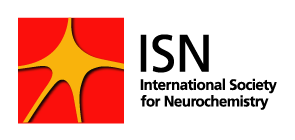This is fifth edition of the YSSC-article has “a closer look at Neuroscience” in Japan. Our monthly series had already covered countries all over the world (Africa, Europe, South America, and Asia). Last time, this article was from South Korea. Many things were different from Japan in my impression. This article is explored about the situation of Japanese researcher.
I interviewed Japanese young scientists (PhD-students and postdocs) and young medical doctors (neurologists and psychiatrists). I have the impression that almost all interviewees have pride of working in the field of neuroscience. Nearly everyone predicted the future of neuroscience will be bright, since Dr.Yamanaka (winner of a Nobel prize) established human induced pluripotent stem cells (iPSC) in 2007and the number of clinical trials against intractable diseases (including Parkinson’s disease and spinal cord injury) increased in Japan. Specially, some interviewees commented that breakthrough treatment will be discovered against intractable diseases in the field of neuroscience during the next 5 year. Therefore, I reconfirmed their clear passion to develop neuroscience further.
However, Japanese researcher has still serious problems. One of the problems are short-term contracts unlike the surveys from South Korea. A similar concern was found in the YSSC surveys from Edinburgh and Rio de Janeiro. Many PhD students and postdocs worry about their next career step and a new position in the field of neuroscience. They would prefer to continue their career in their home country and continue to lose the motivation of going abroad for their carriers. Thus, new regular positions are immediately filled with many new applicants. Nevertheless, most researchers want to have own laboratory in the future. Their continuing enthusiasm for this goal was also revealed in this survey.
Another problem is scientific funding. Almost all interviewees answered that the amount of research funds available are insufficient. This problem is very important for researchers and probably, the Japanese government also considered this when they increased scientific funds for young researchers from last year. However, this is still not enough.
On the upside Japanese researchers these days are very successful in the world, being strong driving forces in the discovery of GFP-protein, establishment of iPSC and clarification of autophagy and the mechanism of immune checkpoint blockade etc.
As a personal note from my side as a Japanese researcher and member of the YSSC: Please don’t be afraid to go abroad. I recommend young Japanese researchers to attend more international meetings (such as ISN biannual meetings or schools) and visit labs abroad to development connections and skills for your career. Please join ISN for first step.
ISN- Stay tuned from the next What’s on! So, ISN-ASN meeting 2019 in Montreal will be held on next month! We look forward to meeting you in Montreal!
Finally, next ISN-APSN meeting 2021 will be held in Kyoto in Japan. Please remember and join to meeting.
Your YSSC
